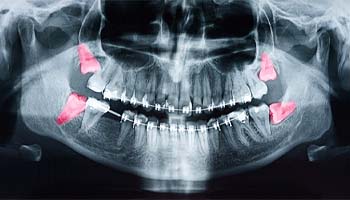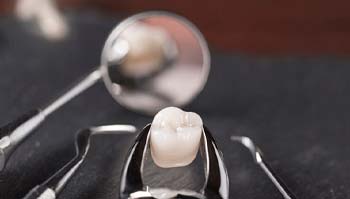Wisdom Tooth Extraction – Metairie, LA
Preventing Further Damage to Your Smile

If you are between the ages of 17 and 25, there’s a good chance your wisdom teeth are becoming more apparent. Whether they’ve partially erupted or are impacted and causing increasing pain toward the back of your mouth, Dr. Nelson will likely discuss the need for wisdom tooth extraction in Metairie . Fortunately, because he can perform the procedure in-house, you will not need to leave the familiarity of our dental office. Call us today to schedule an appointment if you or a member of your family need to discuss potential wisdom tooth removal.
Why Choose Nelson Dental Care for Wisdom Teeth Extraction?
- Dentist with Nearly 10 Years of Experience
- Sedation Dentistry Available
- Dental Insurance Welcome and Flexible Financing
What Are Wisdom Teeth?

Wisdom teeth are commonly referred to as third molars, which are the last set to erupt during later adolescence or early adulthood. Unlike your first two sets of molars, these often do not have adequate room to push through the gum line. As a result, impaction can occur, causing increasing discomfort.
Although these teeth were once necessary for early humans because of the coarse diets they consumed, changes in the formation and development of facial structures no longer make them essential. Also, because there is often a lack of room for these teeth, they can cause significant harm to nearby healthy teeth if left in place.
Why Do Wisdom Teeth Need to Be Removed?

Some individuals do not need to have their wisdom teeth removed. For some reason, these teeth erupt without a problem. However, for most people, it is necessary to extract these teeth before they cause further damage throughout a person’s mouth.
The most common reasons a dentist in Metairie will recommend wisdom tooth extraction are:
- Impaction (teeth that lie beneath the gum line)
- An infection forms that causes fever, swelling, and pain
- A misaligned bite
- Continuous pain and pressure toward the back of the mouth
What to Expect From the Wisdom Teeth Procedure

When arriving for your wisdom tooth extraction, Dr. Nelson will administer local anesthesia to ensure your mouth is numb before beginning the procedure. If necessary, it may also be possible to receive sedation.
Once you are comfortable and he is satisfied with your current state, he will begin to remove your wisdom teeth. If the teeth have partially erupted, he will use specialized instruments to gently rock each tooth back and forth until it detaches from the ligaments holding it in place. If they are impacted, he will need to open your gums and carefully remove each molar in sections. In doing so, you will get to keep more of your natural bone.
Recovering From Wisdom Teeth Extraction

After your procedure is complete, Dr. Nelson will place gauze over the areas to reduce bleeding and encourage blood clots to form. You will need to have someone escort you home, as the anesthesia will take time to fully dissipate.
Once you’re home, make sure to take any medications (antibiotics, pain relievers) prescribed by your dentist. A cold compress can also help to alleviate swelling but only hold in place for 20 minutes at a time.
You’ll be encouraged to maintain good oral hygiene during your recovery, so you can plan to brush your teeth, but you’ll just need to be mindful to steer clear of your surgical sites. Forgetting to do so can irritate them and cause your blood clots to dislodge.
During the first few days, make sure you’re consuming a liquid diet before transitioning to soft foods, as these do not cause additional pressure to be placed on your vacated sockets. As you begin to feel less discomfort and more like your regular self, you can begin to incorporate other foods.
Also, make sure you do not:
- Sip through a straw
- Spit while gently rinsing
- Smoke
- Engage in strenuous activity for at least the first several days
